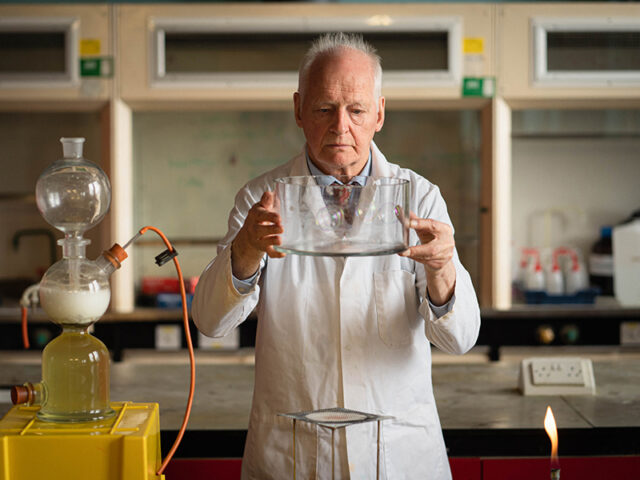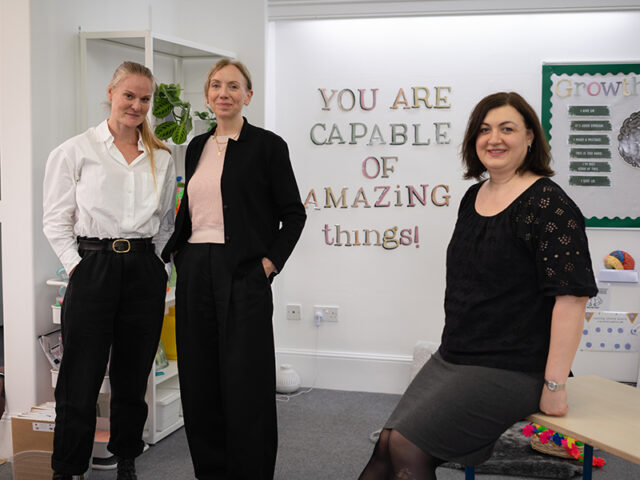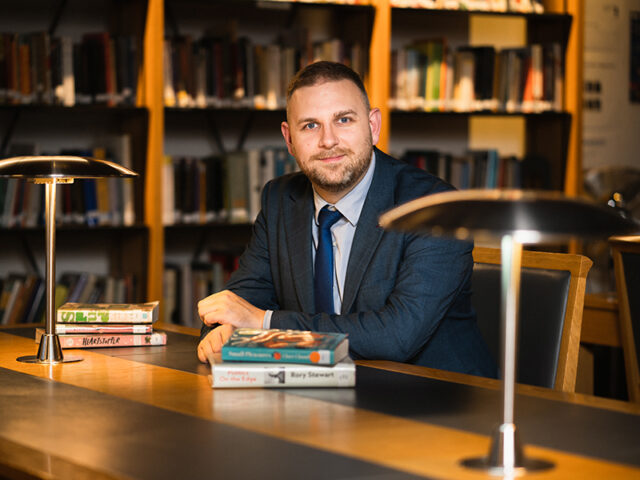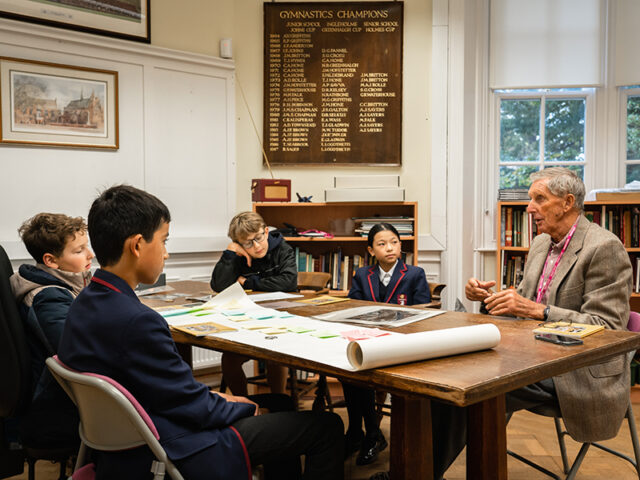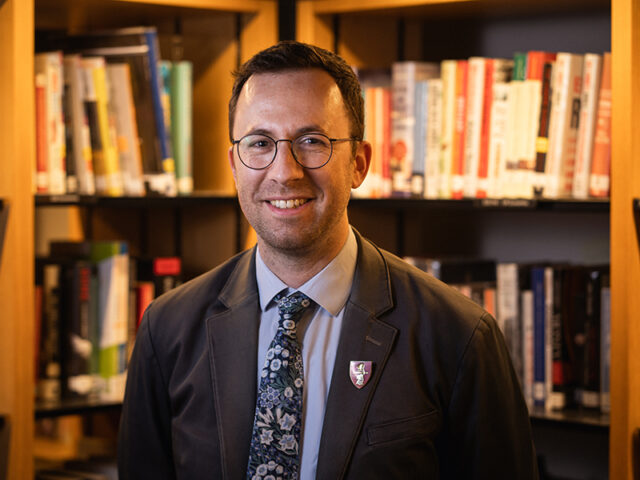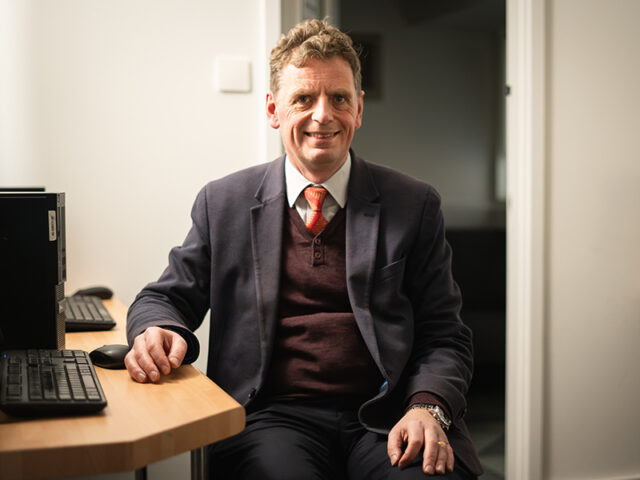To celebrate Pride Month in June, we met with members of the school’s Pride Society to find out what it means to them, and how they’re feeling about taking part in the iconic London Pride parade on 1 July.
Pride Society was formed at Highgate Senior School in 2009 by teacher Mr Plaistowe who runs the sessions every Friday lunchtime with fellow teacher Mr Jack. The society was one of the first of its kind to be founded in a school, offering pupils a safe space and a platform to openly represent the LGBTQ+ community, regardless of their sexual orientation.
Why do you think it’s important to have Pride Society (PS) at the school and what are its main aims?
PS member: It’s really important to have Pride Society here because there needs to be a safe space where people can talk about the issues they’re dealing with. Also, it’s good to have a foundation from which we can plan and discuss how we can make our community more well represented around the school.
PS member: I agree. Even though in the last 30-40 years, so much progress has been made, there are still some stigmas. On a smaller scale in the school, we should all be able to accept each other and get along and PS helps us to do that, so it might be one of the most important societies in the school in my opinion.
PS member: A lot of people might not be able to express how they feel, who they are, their personal identity at home or with their friends, and PS is a place for people to talk about how they feel and get advice. I just think that’s wonderful.
PS member: It’s also a place for like-minded individuals to chat about various things. It’s as much of a social space as it is about making change and expressing issues.
PS member: There are so many interesting things we can learn about history and how members of the community are treated in different countries, any opportunity to learn is something everyone should take.
Mr Jack: From a relationship between staff and pupils perspective, I feel like pupils can speak to us as staff more comfortably here and realistically the other way around as well.
Mr Plaistowe: Even if you don’t come to PS, even if you’re not sure of your sexual orientation, hopefully knowing that Pride Soc meets every week is reassuring. When you’re going through adolescence many people may feel that their feelings and attractions are shifting and changing all the time. I think that is pretty normal and healthy.
How much do you think attitudes have changed towards LGBTQ+ rights since Pride Society was established at the school in 2009?
PS member: I think Pride recognition has definitely helped with the views of gay rights. In 2009 the language used and the attitude towards being gay was probably quite different.
PS member: Y13’s told us that previously, there were only a few pupils who came to PS. More recently pupils have come from different year groups which says a lot about how open everyone is now.
PS member: We’ve made amazing progress as a school and a community, but there are places not too far from here where the stigma does still exist and there’s been slower progress.
PS member: If you reflect on those other countries that aren’t as open, you realise how great the environment is we do live in, nobody really cares what your gender identity is.
Mr Plaistowe: It’s continual progress, when I think back to when I was at school, the idea that there would have been a PS would have been unheard of so it’s a continual and steady progress.
To the new members here: what are you hoping to contribute to Pride Society, is there anything you’d like to achieve?
PS member: This is only my second time and I just wanted to be present in the community. I think it’s important that if you care you should show up.
PS member: I’m fairly new to the school and at my old school it was difficult to call people out if they made homophobic jokes, so it’s a nice change to see that people are wanting to talk about the issues and be open to discussions.
How do you want to change people’s mindsets in the school, what actions do you want to take?
PS member: You don’t have to be part of the LGBTQ+ community to come here. If I can make more people aware of it, the more people will talk about it, that’s how things become normalised in society.
Mr Plaistowe: That’s a good point, just encouraging anyone to come along, they don’t have to be gay. The solidarity and allyship is really important for people who do come regularly.
PS member: I think giving more talks at PS, especially doing joint ones with other societies can help bring in new people that wouldn’t usually come.
PS member: In certain parts of the school, it’s viewed that if you go to a certain society, you’re seen as “I’m this person” and de-stigmatising that is important.
PS member: It’s a testament to how vital PS is to the school that there’s so many people who come every week with no promotion or gimmicks and you can just show up.
Any highlights that have happened at Pride Society over this last school year?
Mr Plaistowe: I really loved Augustine Tanner-Ihm who came in as a guest speaker, a great storyteller and inspirational person. There were so many intersections – race, religion and sexuality all together and so compassionate and wise.
PS member: It was so interesting to see someone from a religious institution be so proud of his sexual identity and it was such an amazing talk.
PS member: It was really exciting to see a person of colour talking about being queer, because you don’t really see that much.
Mr Plaistowe: We’ve had some good talks from PS members too, one gave a talk about queer representations in films.
PS member: The talks are really great but one of the things I like about PS is that it tends to be more informal, it doesn’t feel as intimidating as other places can feel.
Pride Society is taking part in the Pride parade in London. What are you looking forward to most on the day?
Mr Plaistowe: This is the first time we’ll be going together with our partner school, London Academy of Excellence Tottenham (LAET), which is great!
PS member: It was my first time going to Pride last year and especially as I come from a country where (being gay) is illegal, it’s quite exciting to be seen as ‘Wow it is normal’ and it’s just really fun as well.
Mr Plaistowe: To be visible at Pride London and show we have a PS at Highgate that’s really well established. Also, going with LAET, we want to make that connection stronger and I hope it will lead to other events we do together.
